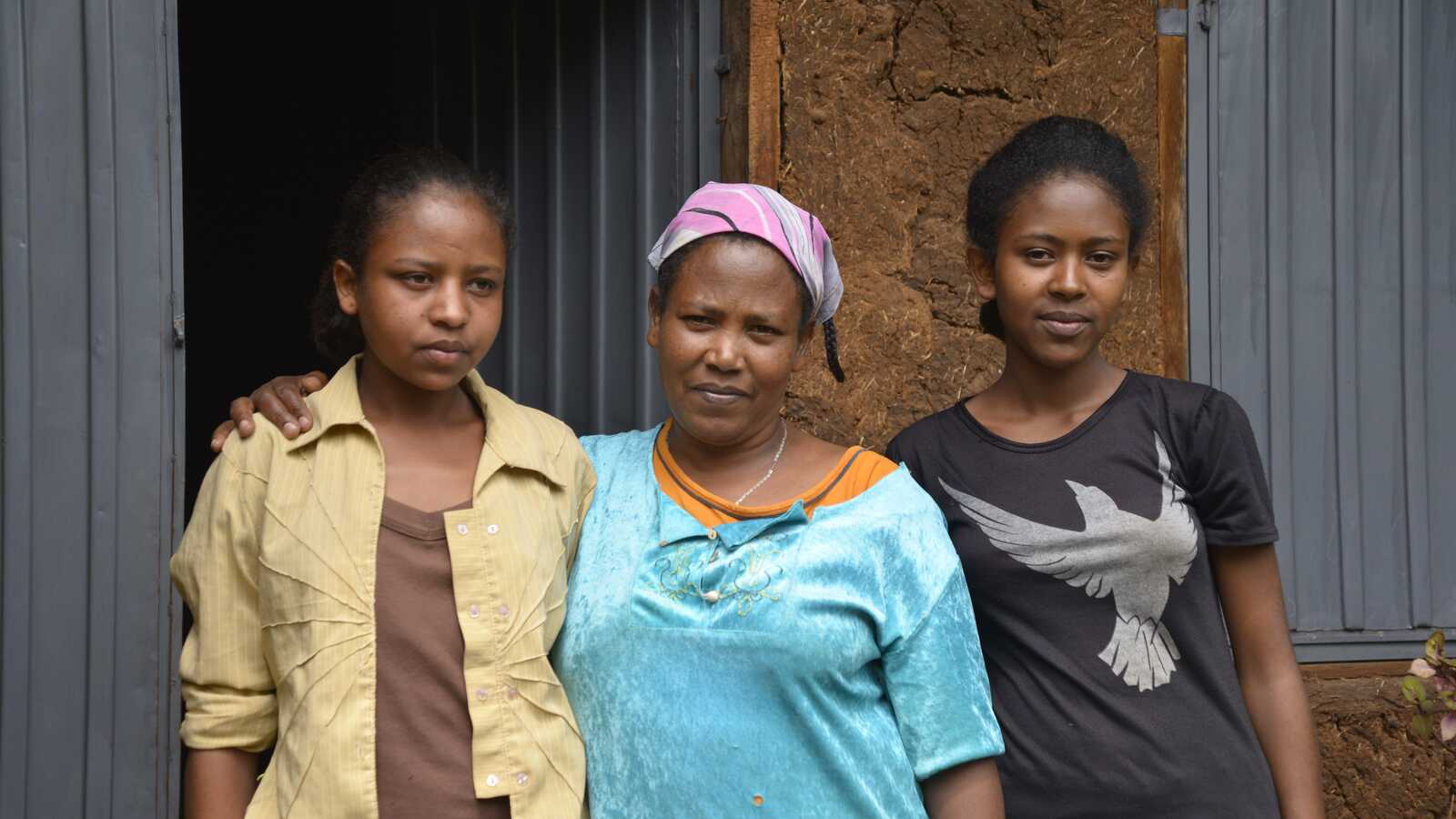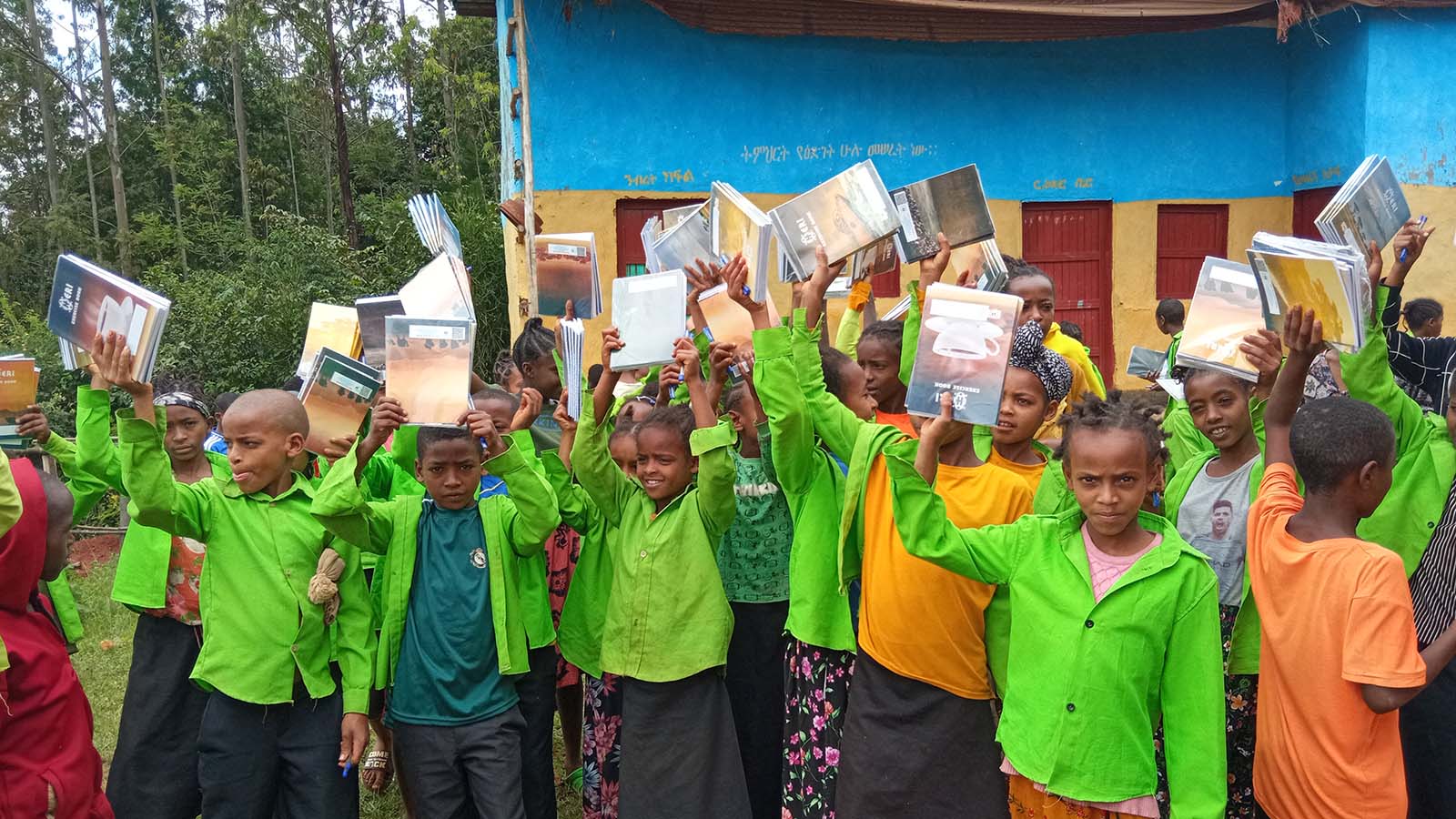In two thirds of the world, women and girls are hungrier than men and boys. Learn why women are more likely to live in poverty, face discrimination and receive fewer resources.
A young mother in Ethiopia uses the last cup of rice and the vegetable scraps from yesterday to prepare dinner for her family in Ethiopia. When the food is ready, she lets her husband eat his fill first, and then she scoops out bowls for her hungry children. After that, just a few spoonfuls remain for her.
This scenario is all too common for women around the world, in many of the communities Holt serves. Due to a variety of factors, women eat last and least.
The Problem
According to the U.S. World Food Program, women are more likely to experience chronic hunger than men.
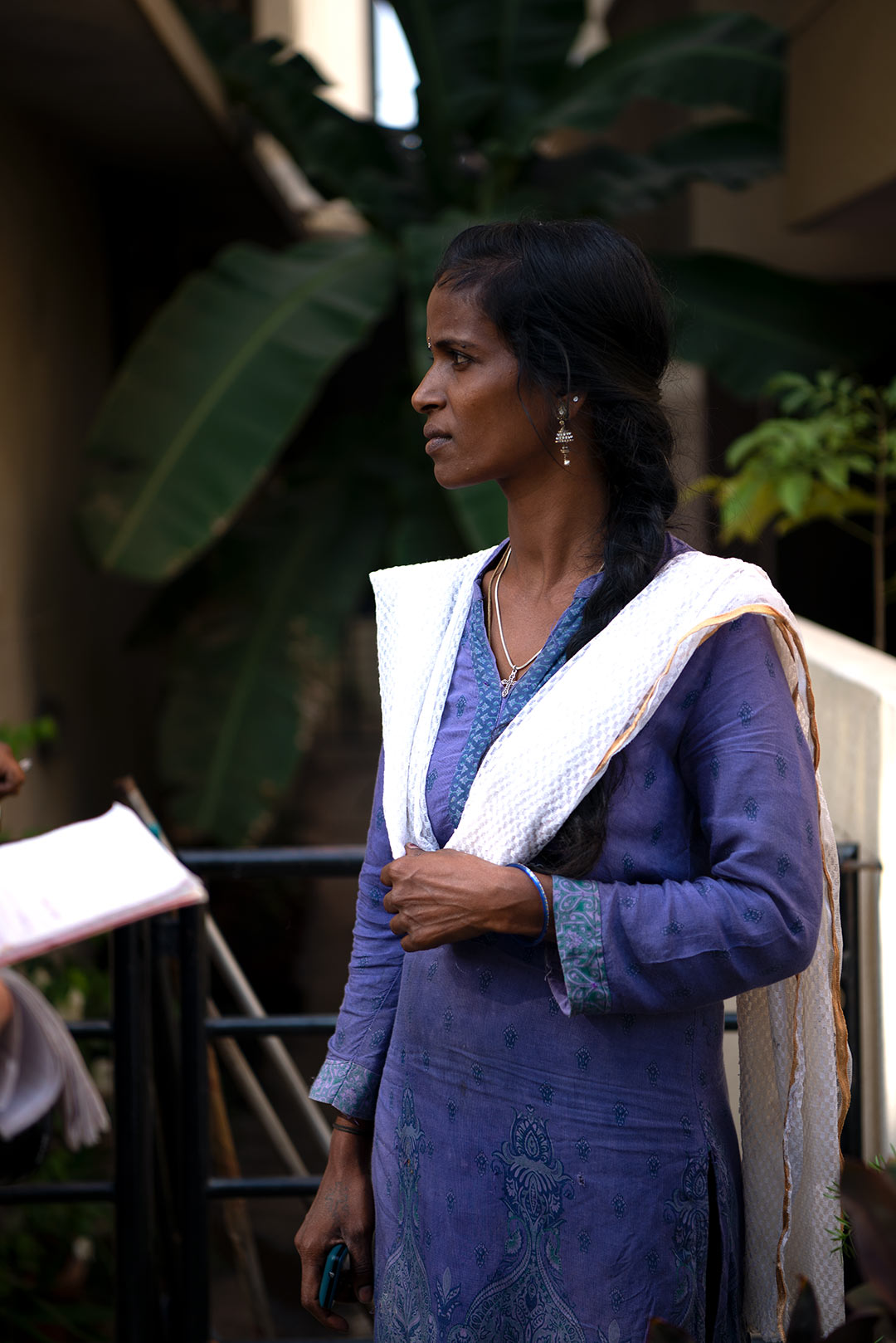
Why? Around the world, women are more likely to live in poverty and face gender-based discrimination. They are also less likely to receive resources like education, property rights and health care. All of these factors contribute to a person’s food security – their ability to have reliable access to enough affordable, nourishing food. As a result, women are hungrier.
Unfortunately, it’s getting worse. Back in 2018, 18 million more women than men were food insecure – lacking regular access to sufficient safe, nutritious food. But just three years later, in 2021, the United Nations’ Food and Agriculture Organization (FAO) found that the number had jumped by a factor of 8 to 150 million more women than men facing food instability.
Many experts also say that the combined forces of climate change, the COVID-19 pandemic and Russia’s invasion of Ukraine are reversing decades of progress in gender equality. Each of these global situations corresponds directly to hunger rates among women.
Holt staff and partners around the world are seeing these worrying global trends as well. Issues such as women’s livelihoods, child marriage, education, lack of land ownership and traditional customs all play a role — all factors that disproportionally affect women.
Women’s Jobs are Less Reliable
In most countries where Holt works, women have been unduly affected in their livelihoods by the pandemic. Women receive fewer resources and opportunities at home and at work, resulting in lower income than male-headed households.
A recent article in Women’s Agenda commented that the pandemic has exaggerated this state of affairs. Women have experienced greater job and income losses since the pandemic than men. This is because they tend to work jobs that are less secure.
Our overseas program staff sees the truth of this daily. Women who were employed as maids, cooks or in agriculture fields all lost work as a result of COVID-19 shutdowns. This left many women and families hungry and out of options. And many of these job positions haven’t become available again even as countries and communities have opened back up post-pandemic.
Women are in crisis without sustainable job options, and the first and most dangerous result of this is hunger.
Child Marriage Leaves Girls Hungrier
Another reason why women experience more hunger is rooted in another issue — child marriage. In the communities where Holt donors support children and families in India, the economic pressures of the COVID-19 pandemic have pushed many families into poverty. In situations where it wouldn’t have been considered a decade ago, parents are once again pursuing marriage for their 14- and 15-year-old daughters. Many believe it will provide their daughters with security while reducing the number of mouths they have to feed at home.
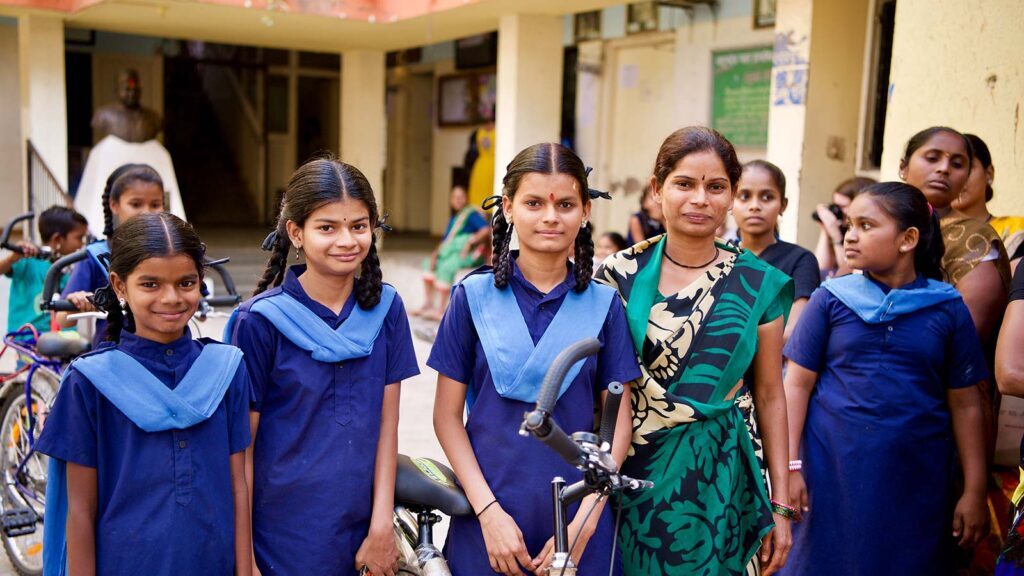
This is true in parts of Africa as well, including Ethiopia.
“While the practice of child marriage across Ethiopia has significantly decreased recently, we continue to see less priority for girls to be educated. This is especially true in rural areas,” says Malia Robello, Holt’s Ethiopia program manager. “Without education and pathways to stable income, early marriage is seemingly the best option for many girls when their families are struggling to meet the needs of the entire household.”
But early marriage doesn’t make these girls any more food secure. Instead, it renders them vulnerable to abuse and exploitation. And since child marriage terminates girls’ schooling, it leaves them less equipped to provide for themselves and more vulnerable to hunger in the future.
Women More Likely to Leave School Early
Not only is an education a way to protect girls from child marriage, but it also protects girls from hunger. But girls are more likely than boys to be pulled from school to help their families in times of crisis.
“When families are really struggling, we know that the women and girls will take on extra responsibilities to provide for the whole family,” says Malia Robello. “When prolonged drought destroys a family’s cash crops or an accident puts a parent out of work, we see girls – more than boys – drop out of school to help out at home.”
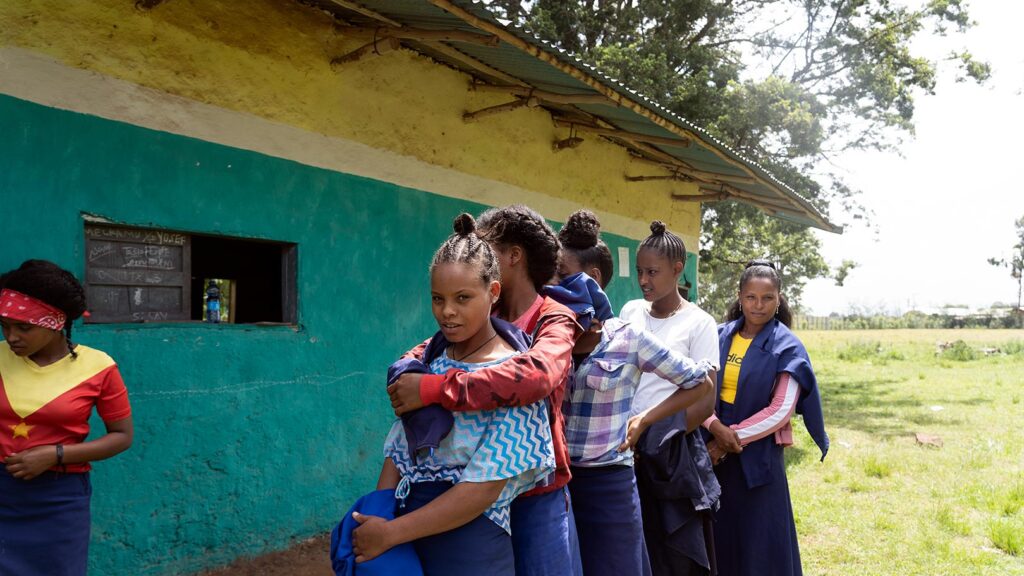
Girls dropping out of school is a short-term solution that perpetuates a long-term problem — literacy rates among women and girls. Around the world, women are less literate and therefore less likely to find employment. This renders them unlikely to earn a stable income and provide enough food for themselves and their children.
Agriculture & Lack of Land Ownership for Women
Women around the world who work in agriculture are also susceptible to malnutrition and financial instability, as well as their families.
The World Food Program reports that though women produce 60-80% of the food in low- and middle- income countries, they own less than 10% of the land. This bars women from the rights and protections of land ownership that men receive. So women are left out of work and their children underfed when crops don’t grow or land is repurposed.
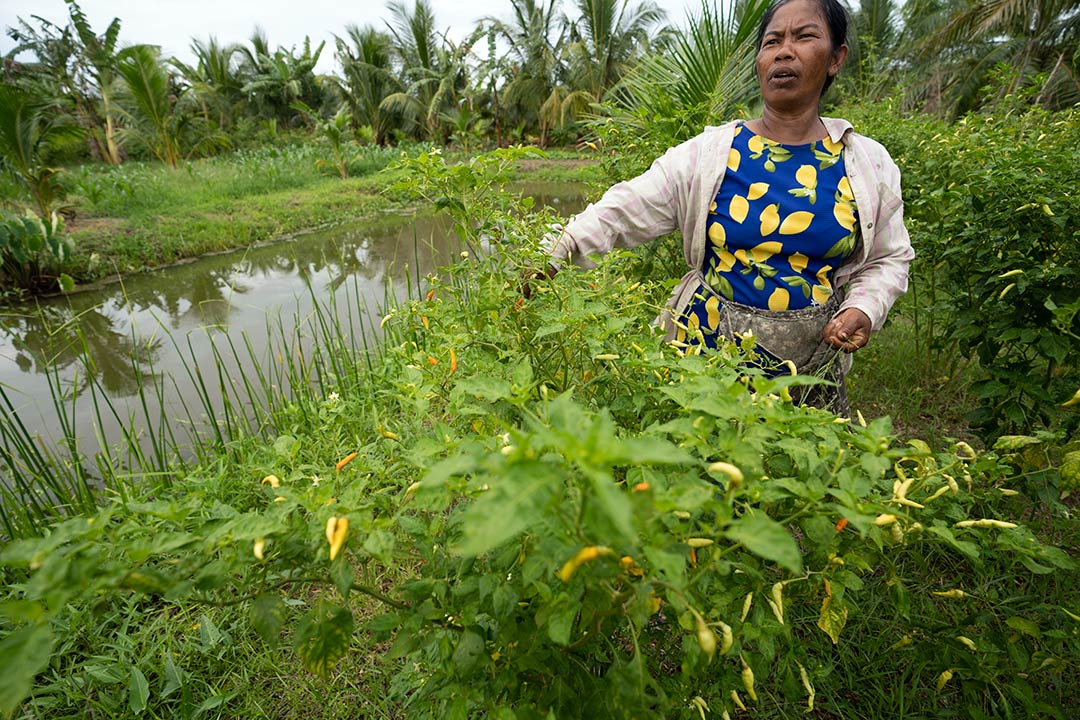
“Overall, women’s land ownership is connected to income growth and better child nutrition, but women are usually not even recognized as farmers,” states a study on hunger and gender disparity by the UN Food and Agriculture Organization.
Much of this agricultural work is unpaid, time-consuming and exhausting. For example, women spend billions of hours gathering water for their households and gardens every year. In areas of the world where the climate has grown more prone to drought and flood, women are paying the price in hunger and productivity.
Tradition
Finally, like for the young mother in Ethiopia, in many places gender disparity is baked into their very customs and traditions. While this has decreased over the years, it still persists in many of the countries we serve.
“Women and girls traditionally eat last during daily meals. When food is scarce it is often women and girls who are undernourished,” adds Malia Robello.
“An Ethiopian proverb says ‘a woman’s saliva is thick’ to denote that she doesn’t require much to nourish herself. During the difficult seasons, the responsibility of women to prepare and feed family members is enormous. And many women go to bed on an empty stomach.”
Zerihun Gultie, Holt’s Ethiopia country director
In times of upheaval that already leave women more prone to hunger and instability, gender norms can make it worse.
“An Ethiopian proverb says ‘a woman’s saliva is thick’ to denote that she doesn’t require much to nourish herself,” says Zerihun Gultie, Holt’s Ethiopia country director. “During the difficult seasons, the responsibility of women to prepare and feed family members is enormous. And many women go to bed on an empty stomach.”
Empowering Women Directly Addresses Hunger
The good news is that women have incredible potential to be a vital part of the solution to global hunger. In many places, they already are.
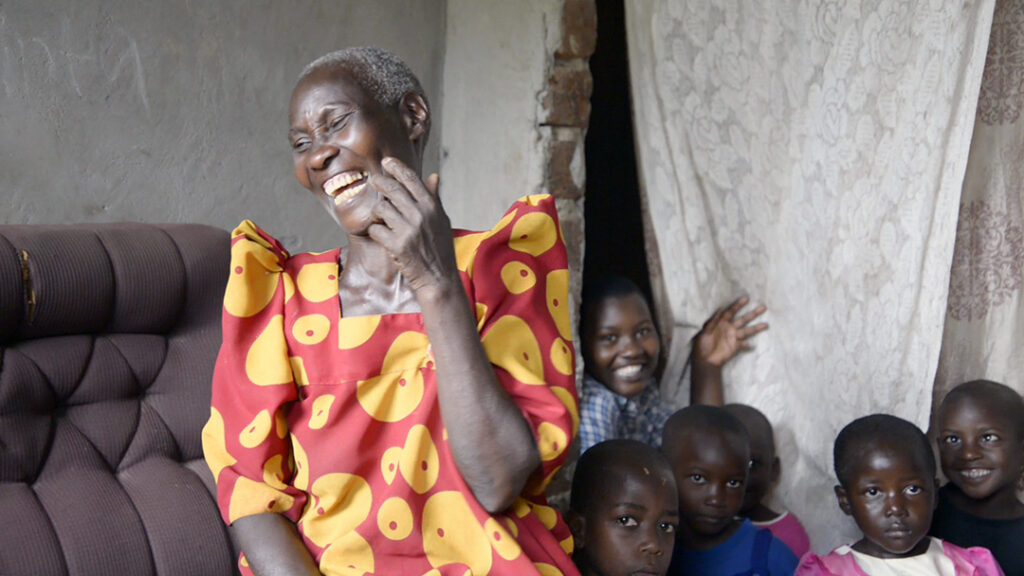
A recent report by international aid organization CARE looked specifically at the link between gender equality and food security.
“Women are critical members of society who play important roles in producing food, and getting it on the table,” the report states. “Their rights and their access to food are heavily intertwined. More than that, gender equality is highly connected to food security at a local, national, and global level. Simply put, as this research shows, the more gender inequality there is in a country, the hungrier people are.”
To put it more positively, the FAO has found that women’s agency is a crucial component of food security. Women’s empowerment is strongly correlated with a reduction in poverty and hunger. This is especially true in the lives of children, globally!
“When women and girls are educated we see a decrease in their and their children’s risk of malnutrition,” says Emily DeLacey, PhD, RDN, LDN, director of Holt’s nutrition and health services.
In fact, one study found that women’s education contributed to a 43% decrease in child malnutrition. In addition, even though women globally earn 77 cents for every dollar men earn, women invest 90% of their income back into their family. Men only invest 40%!
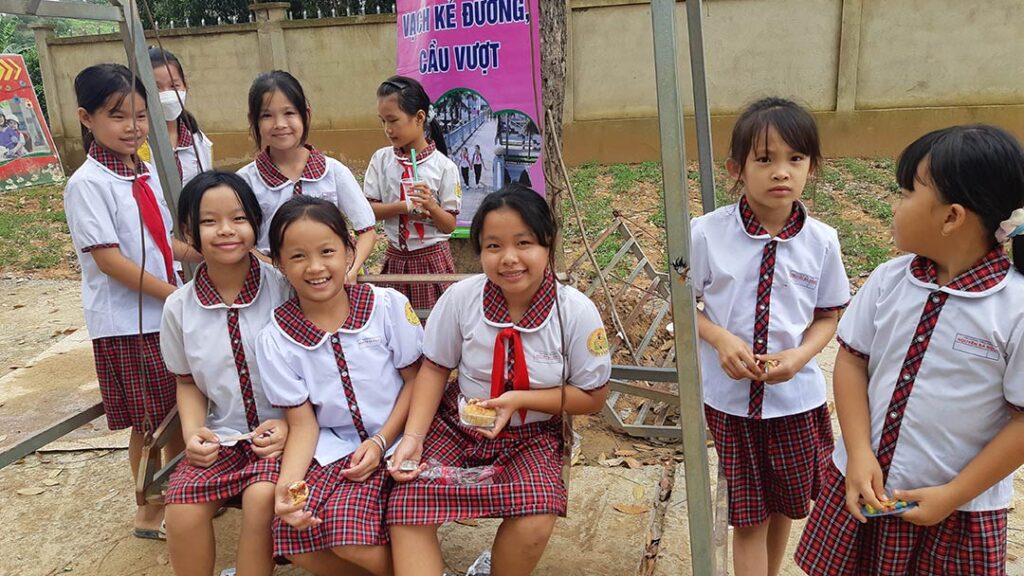
The World Bank found that for every year a girl remains in school, her average income rises by almost 12%. Women’s empowerment also has enormous benefits for a country’s economic development and prosperity.
Why We Emphasize Women
This is why we focus on female empowerment in so many of our programs. It is also why so many of Holt’s Gifts of Hope support women and girls! With the generous support of Holt sponsors and donors, our teams in the field are able to develop community savings groups in countries like Thailand and Uganda. They also deliver Gifts of Hope like livestock and gardening training to women and provide microgrants for female-run small businesses.
“In India, we engage women in workshops that teach them about good nutrition, hygiene, child development and provide them and their children a nutritious snack,” says Emily DeLacey. “This engagement with mothers provides them support that supports their whole family. Many report a sense of pride in their participation and that their husbands are also proud of their accomplishments and new skills and knowledge.”
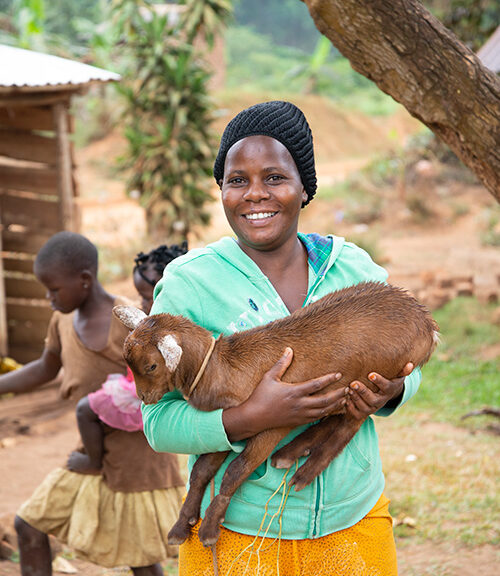
Wherever we can, we identify areas to invest in women because we see and know just how fruitful it is.
“Because the causes of hunger are so complex, our programs in Ethiopia link nutrition, education and women’s economic empowerment to ensure families have the resources they need to provide for every member of their household,” says Malia Robello.
When women are equipped with the resources they need, they feed their children, families and communities!
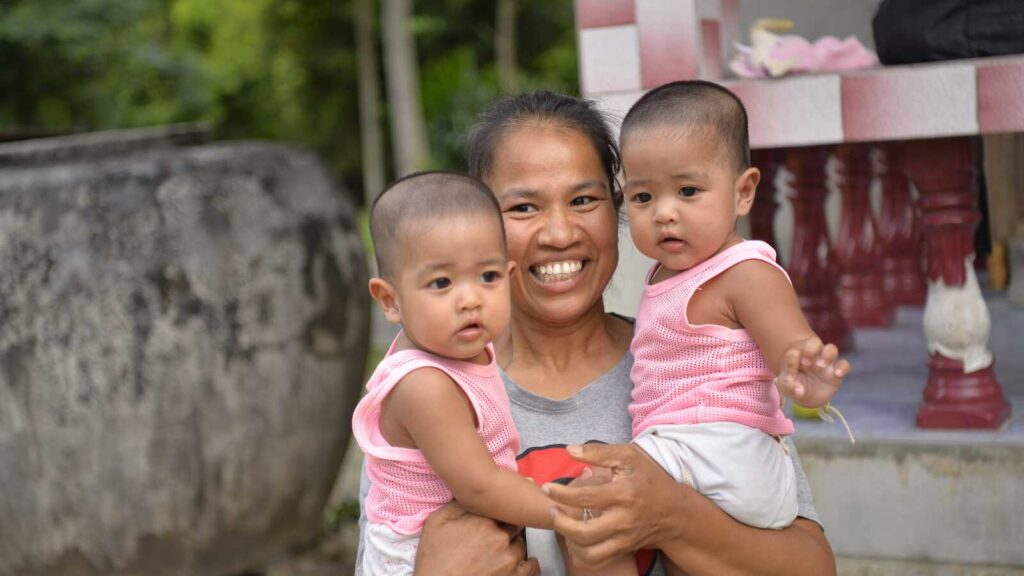
Empower Women and Girls!
When you give a Gift of Hope like job skills training, a sewing machine or a school scholarship to a woman or girl living in poverty, you empower her to change her life forever — and transform her family and community!
